Advanced PHP
Advanced PHP builds on the basics of the language and includes advanced features like object-oriented programming, namespaces, traits, and anonymous functions. Here are some examples of advanced PHP concepts :
OOP is a programming paradigm that allows developers to create objects that encapsulate data and behavior. In PHP, OOP is used to create classes, which can be instantiated to create objects. For example:
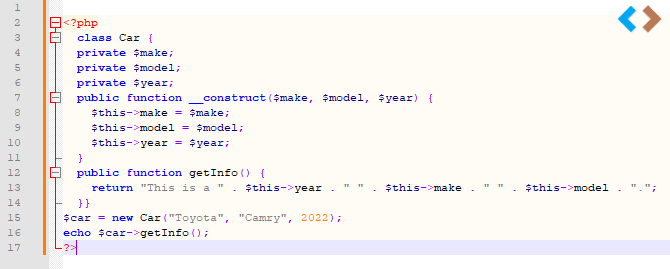
class Car {
private $make;
private $model;
private $year;
public function __construct($make, $model, $year) {
$this->make = $make;
$this->model = $model;
$this->year = $year;
}
public function getInfo() {
return "This is a " . $this->year . " " . $this->make . " " . $this->model . ".";
}}
$car = new Car("Toyota", "Camry", 2022);
echo $car->getInfo();
Namespaces
Namespaces are used in PHP to avoid naming conflicts between classes and functions. They allow developers to group related code together under a common namespace. For example :
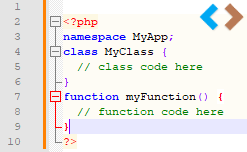
namespace MyApp;
class MyClass {
// class code here
}
function myFunction() {
// function code here
}
Traits
Traits are used in PHP to share methods between classes. They allow developers to reuse code without having to create a new class hierarchy. For example :
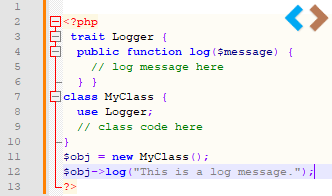
trait Logger {
public function log($message) {
// log message here
} }
class MyClass {
use Logger;
// class code here
}
$obj = new MyClass();
$obj->log("This is a log message.");
Anonymous Functions
Anonymous functions, also known as closures, are functions that do not have a name and can be assigned to variables. They are often used for callback functions and for creating inline functions. For example:
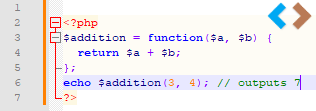
$addition = function($a, $b) {
return $a + $b;
};
echo $addition(3, 4); // outputs 7
Abstract classes and methods
Abstract classes are classes that cannot be instantiated and are only meant to be extended by other classes. Abstract methods are methods that do not have an implementation in the abstract class and must be implemented in the child classes. For example:
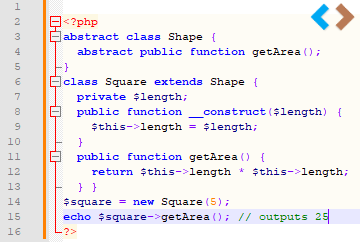
abstract class Shape {
abstract public function getArea();
}
class Square extends Shape {
private $length;
public function __construct($length) {
$this->length = $length;
}
public function getArea() {
return $this->length * $this->length;
} }
$square = new Square(5);
echo $square->getArea(); // outputs 25
Interfaces
Interfaces are similar to abstract classes in that they define a set of methods that must be implemented by the implementing classes. However, interfaces cannot have any method implementations and cannot define any properties. For example:
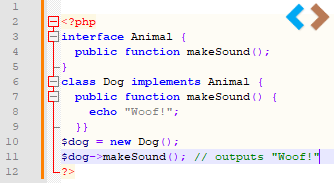
interface Animal {
public function makeSound();
}
class Dog implements Animal {
public function makeSound() {
echo "Woof!";
}}
$dog = new Dog();
$dog->makeSound(); // outputs "Woof!"
Magic methods
Magic methods are predefined methods in PHP that get called automatically in certain situations. For example, the __toString() method is called when an object is converted to a string, and the __get() and __set() methods are called when an object property is accessed or assigned. For example:
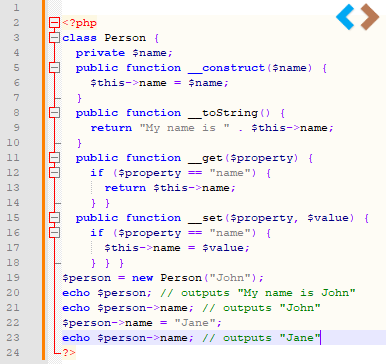
class Person {
private $name;
public function __construct($name) {
$this->name = $name;
}
public function __toString() {
return "My name is " . $this->name;
}
public function __get($property) {
if ($property == "name") {
return $this->name;
} }
public function __set($property, $value) {
if ($property == "name") {
$this->name = $value;
} } }
$person = new Person("John");
echo $person; // outputs "My name is John"
echo $person->name; // outputs "John"
$person->name = "Jane";
echo $person->name; // outputs "Jane"
These are just a few examples of the many advanced features that PHP offers. By mastering these advanced concepts, developers can write more powerful and efficient code for their web applications.
